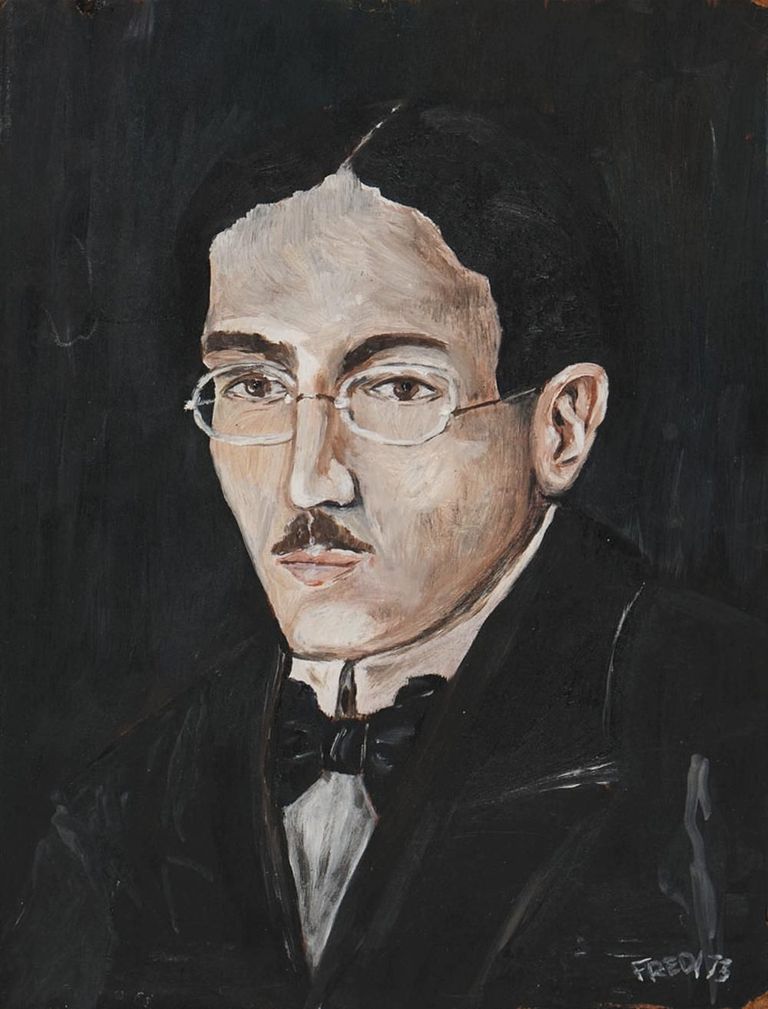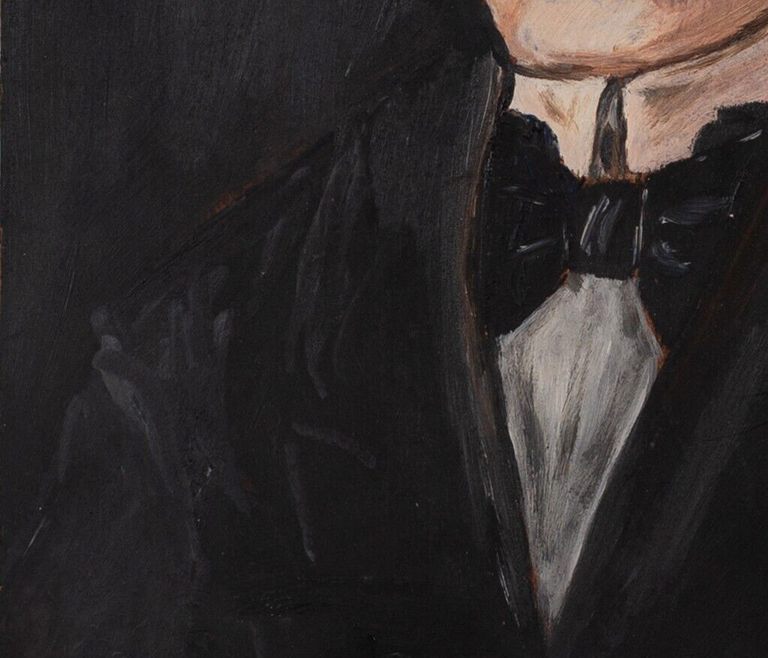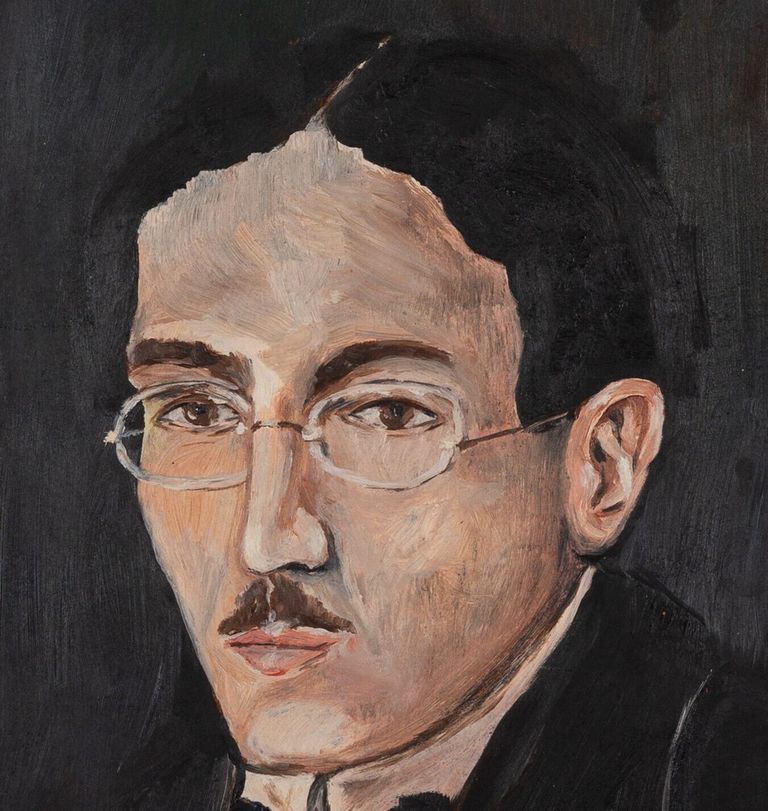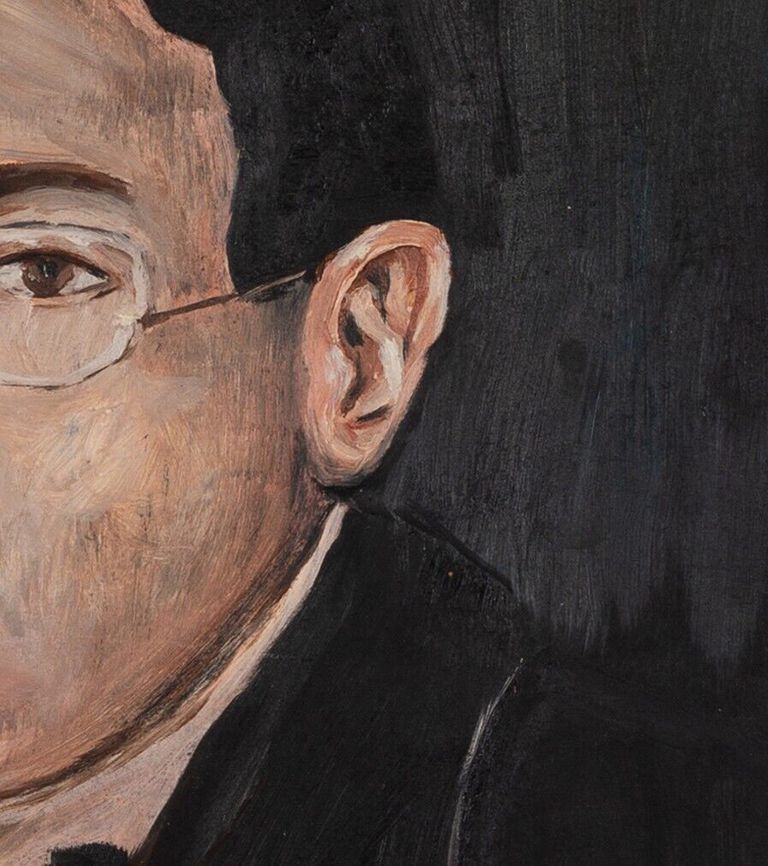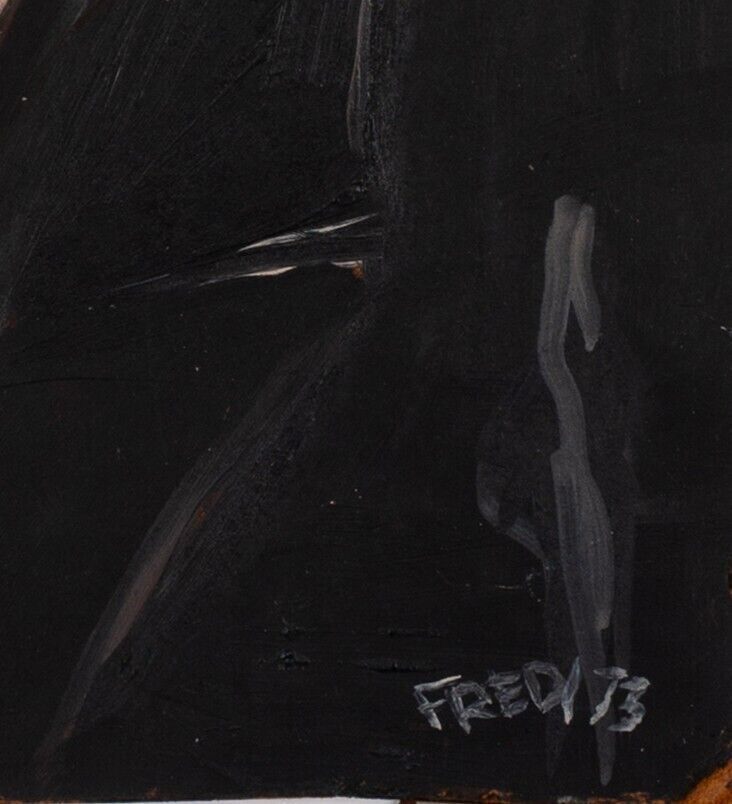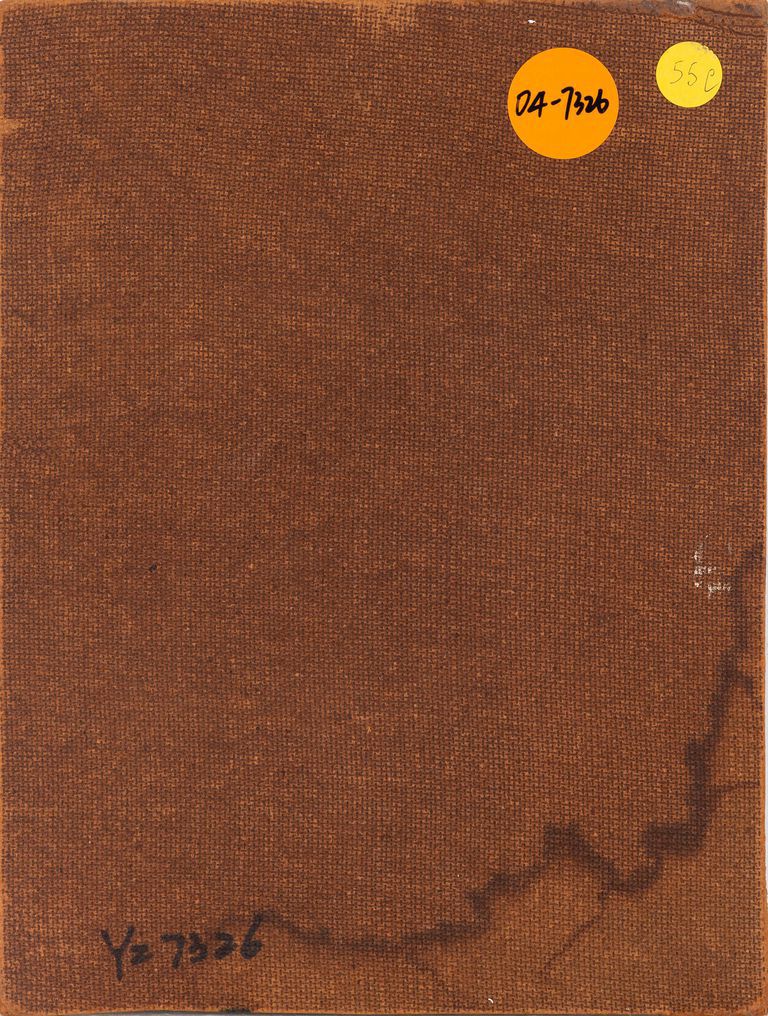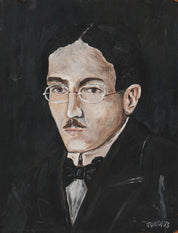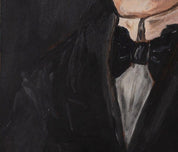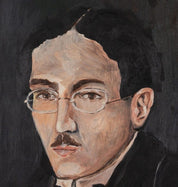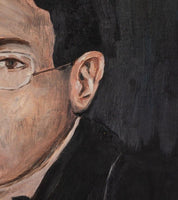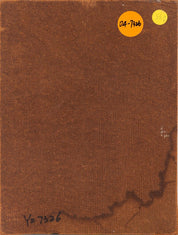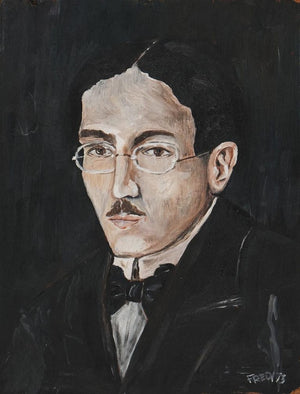Similar Items
Fredy 'Portrait of Fernando Pessoa'
$800.00 USD
This captivating portrait depicts Fernando Pessoa, one of the greatest Portuguese poets of all time, whose Modernist work revolutionized Portuguese literature and brought it European acclaim. Pessoa's profound impact on poetry and his unique approach to writing make this portrait a compelling tribute to his legacy.
Artist:
The artist behind this remarkable portrait of Fernando Pessoa remains unknown, yet their skill in capturing Pessoa's essence and charisma is evident. The artwork showcases a deep understanding of Pessoa's literary contributions and their significance in the cultural landscape.
Medium:
Oil on panel - The use of oil paints on panel adds depth and texture to the portrait, enhancing the nuances of Pessoa's features and capturing the essence of his personality.
Dimensions:
Artwork: 29.5 x 22.2 cm (11.6 x 8.7 inches)
Notes:
The portrait is signed and dated by the artist in the lower right corner. UNFRAMED
Condition Report:
Overall, the portrait of Fernando Pessoa is in good condition, with slight wear noticeable on the edges. This minor wear does not detract from the visual impact of the artwork and is a testament to its age and historical significance.
This portrayal of Fernando Pessoa serves as a captivating homage to his literary contributions and the profound impact he had on Portuguese literature. The portrait encapsulates the essence of Pessoa's intellectual depth and creative brilliance, making it a valuable addition to any collection or a thoughtful gift for admirers of his work.
Fernando Pessoa, in full Fernando António Nogueira Pessoa, (born June 13, 1888, Lisbon, Port.—died Nov. 30, 1935, Lisbon), one of the greatest Portuguese poets, whose Modernist work gave Portuguese literature European significance.
From the age of seven Pessoa lived in Durban, S.Af., where his stepfather was Portuguese consul. He became a fluent reader and writer of English. With the hope of becoming a great poet in that language, Pessoa wrote his early verse in English. In 1905 he returned to Lisbon, where he remained, working as a commercial translator while contributing to avant-garde reviews, especially Orpheu (1915), the organ of the Modernist movement. Meanwhile he read widely not only in poetry but in philosophy and aesthetics. He published his first book of poetry in English, Antinous, in 1918 and subsequently published two others. Yet it was not until 1934 that his first book in Portuguese, Mensagem (Message), appeared. It attracted little attention, and Pessoa died the next year a virtual unknown.
Fame came to Pessoa posthumously, when his extraordinarily imaginative poems first attracted attention in both Portugal and Brazil in the 1940s. His oeuvre is remarkable for the innovation of what Pessoa called heteronyms, or alternative personae. Rather than alter egos—alternative identities that serve as counterparts to or foils for an author’s own ideas—Pessoa’s heteronyms were presented as distinct authors, each of whom differed from the others in terms of poetic style, aesthetic, philosophy, personality, and even gender and language (Pessoa wrote in Portuguese, English, and French). Under their names were published not only poems but also criticism on the poetry of some of the others, essays on the state of Portuguese literature, and philosophical writings.
Artist:
The artist behind this remarkable portrait of Fernando Pessoa remains unknown, yet their skill in capturing Pessoa's essence and charisma is evident. The artwork showcases a deep understanding of Pessoa's literary contributions and their significance in the cultural landscape.
Medium:
Oil on panel - The use of oil paints on panel adds depth and texture to the portrait, enhancing the nuances of Pessoa's features and capturing the essence of his personality.
Dimensions:
Artwork: 29.5 x 22.2 cm (11.6 x 8.7 inches)
Notes:
The portrait is signed and dated by the artist in the lower right corner. UNFRAMED
Condition Report:
Overall, the portrait of Fernando Pessoa is in good condition, with slight wear noticeable on the edges. This minor wear does not detract from the visual impact of the artwork and is a testament to its age and historical significance.
This portrayal of Fernando Pessoa serves as a captivating homage to his literary contributions and the profound impact he had on Portuguese literature. The portrait encapsulates the essence of Pessoa's intellectual depth and creative brilliance, making it a valuable addition to any collection or a thoughtful gift for admirers of his work.
Fernando Pessoa, in full Fernando António Nogueira Pessoa, (born June 13, 1888, Lisbon, Port.—died Nov. 30, 1935, Lisbon), one of the greatest Portuguese poets, whose Modernist work gave Portuguese literature European significance.
From the age of seven Pessoa lived in Durban, S.Af., where his stepfather was Portuguese consul. He became a fluent reader and writer of English. With the hope of becoming a great poet in that language, Pessoa wrote his early verse in English. In 1905 he returned to Lisbon, where he remained, working as a commercial translator while contributing to avant-garde reviews, especially Orpheu (1915), the organ of the Modernist movement. Meanwhile he read widely not only in poetry but in philosophy and aesthetics. He published his first book of poetry in English, Antinous, in 1918 and subsequently published two others. Yet it was not until 1934 that his first book in Portuguese, Mensagem (Message), appeared. It attracted little attention, and Pessoa died the next year a virtual unknown.
Fame came to Pessoa posthumously, when his extraordinarily imaginative poems first attracted attention in both Portugal and Brazil in the 1940s. His oeuvre is remarkable for the innovation of what Pessoa called heteronyms, or alternative personae. Rather than alter egos—alternative identities that serve as counterparts to or foils for an author’s own ideas—Pessoa’s heteronyms were presented as distinct authors, each of whom differed from the others in terms of poetic style, aesthetic, philosophy, personality, and even gender and language (Pessoa wrote in Portuguese, English, and French). Under their names were published not only poems but also criticism on the poetry of some of the others, essays on the state of Portuguese literature, and philosophical writings.
Popular Items
































